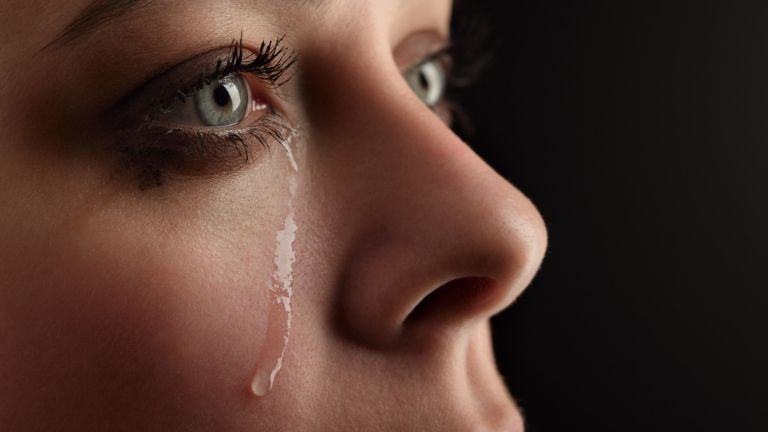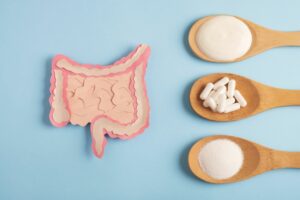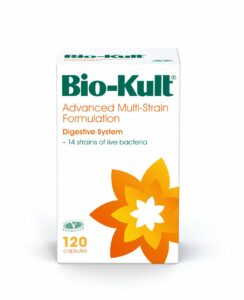For Mental Health Awareness Week, we look at how symptoms of depression can be reduced through taking care of our gut microbiome
If you often feel sad, tired, stressed or can’t focus, you may be suffering from symptoms of depression.
According to the World Health Organisation (WHO), over 300 million people suffer from depression globally.
Described as a low mood that lasts for a long time, depression can affect your everyday life and can make simple tasks seem far more challenging.
over 300 million people suffer from depression globally
In its most severe from, depression can even be life-threatening as it can bring about suicidal thoughts.
If you’re low mood remains after a couple of weeks, talk to your GP. If you are feeling distressed, in a state of despair or suicidal you can contact the NHS on 111 or Samaritans on 116 123 (24 hours, 7 days a week).
Indeed, over the past couple of years COVID has been reported to have had a significant negative impact on people’s mental health, noting higher rates of anxiety, stress and symptoms of depression.
GPs have few options for those suffering from symptoms of depression, bar prescribing an antidepressant, or placing the patient on an ever-growing waiting list for talking therapy.
While medication and therapy can work for many, alarmingly, ten to 30 percent of depressed patients fail to respond to standard treatment.
GPs have few options for those suffering from symptoms of depression
While the NHS recommends exercise as a viable solution for mild depression and countless studies show its effectiveness as a mood enhancer it may be especially challenging to find the motivation when feeling low.
Fortunately, there may be another way to help tackle symptoms of depression, aside from conventional medication and involves improving the bacteria in your gut.
Gut health and depression
Problems with digestion are frequently reported in people with depression.
In fact one study found that patients with irritable bowel syndrome (IBS) had more frequent and severe depressive symptoms.
While most people are aware of the crucial role gut bacteria plays in digestion with studies linking the microbes in our large intestines to everything from allergies to immunity to weight, researchers have discovered that the trillions of gut bacteria that reside in our bodies, mainly in the digestive tract, play an integral role in our overall wellbeing and mental health.
This is because there is a nervous system in the gut and this nervous system communicates directly with the brain. It’s known as the ‘gut-brain’ axis, whereby the gut acts as our ‘second’ brain.
approximately 90 per cent of serotonin is produced in the digestive system
Our gut bacteria help to regulate the production of serotonin (a key brain chemical for mood) within the gut. Indeed, approximately 90 per cent of serotonin is produced in the digestive system.
Serotonin is made from an important protein called tryptophan, substances from this protein as well as others from our gut bacteria stimulate the vagus nerve – a long, critical nerve extending from the abdomen to the brain – which connects our digestive system to the central nervous system.
When there is normal stimulation of the vagus nerve, mood may be regulated. However, an imbalance in beneficial gut bacteria may have the opposite result and lead to low mood symptoms and depression.
How can we improve our gut health?
Factors that can affect your gut health include high stress levels, a diet high in processed foods and sugar, as well as a low intake of fresh vegetables and fruit. Taking antibiotics may also disrupt the balance of gut microflora, especially if used often
In fact, it can take months for the gut to recover from one course of antibiotics.
Supporting the gut is easier than you think though. Making some simple dietary changes can significantly benefit digestive function and therefore potentially improve symptoms of low mood.
One way to support good gut health is to regularly consume live fermented foods such as kefir (fermented milk drink native to Eastern Europe), live yoghurt, sauerkraut, kimchi (a Korean fermented cabbage) and kombucha.
Gut microflora may also flourish when eating plenty of fibre foods and prebiotics. This includes foods such as Jerusalem artichokes, slightly green bananas, onions, garlic and chicory root.
The microbes in your gut also feed off foods containing antioxidants called polyphenols found in seeds, nuts, extra virgin olive oil, coffee, dark chocolate and wine.
A probiotic proven to improve mood, concentration & stress levels
As well as adding gut-friendly foods to your daily routine, supplementing with live bacteria capsules such as probiotics may be an easy way to improve gut health and symptoms of depression, as a scientific trail confirms.
A recent randomised, double-blind, placebo-controlled study – the gold standard in medical research – has found interesting results regarding mood and probiotics.
The study by the University of Oxford enrolled 71 adults with symptoms of mild to moderate low mood, none of which were taking antidepressants or any other mood-altering medication.
findings suggest that probiotics could be used as an early intervention to help reduce the risk of people with mild to moderate depression
Low mood associated symptoms were assessed following four weeks’ supplementation with either a gut-friendly probiotic or placebo.
Impressively, participants taking the gut-friendly probiotic – Bio-Kult Advanced daily with 14 different strains of live bacteria – significantly reduced overall depression-related scores by 50 per cent, compared to when they started the trial.
This significant statistic adds to the growing body of evidence that indicates that the gut microbiome may have a meaningful impact upon mood.
Probiotics are not a replacement for prescription medication and psychological therapies, however, Associate Professor Phil Burnet, from the Department of Psychiatry at Oxford University says, ‘our findings suggest that probiotics could be used as an early intervention to help reduce the risk of people with mild to moderate depression developing a major depressive disorder, which is more debilitating and often difficult to treat’.
In addition to the findings on mood improvement, Bio-Kult (Bio-Kult Advanced, £19.94 for a pack of 60 capsules) intake also significantly improved concentration and tiredness, which are also commonly reported as low in depression.
Those who suffer with depression are known to have higher levels of cortisol. As well as the psychological benefits shown in this study, the research team also measured a range biological factors including saliva levels of the stress hormone cortisol and noted that levels were slightly reduced.
More Healthista Content:
Jillian Michaels reveals how you can make the most of your workouts EVERY time
5 CBD benefits for women you didn’t already know about
Food synergy – 9 healthy recipes with food combinations guaranteed to super-boost your health
7 signs your friend may have an eating disorder and how to support them
Look after yourself: 6 self-care essentials for a happier, healthier you
Like this article? Sign up to our newsletter to get more articles like this delivered straight to your inbox.


























































